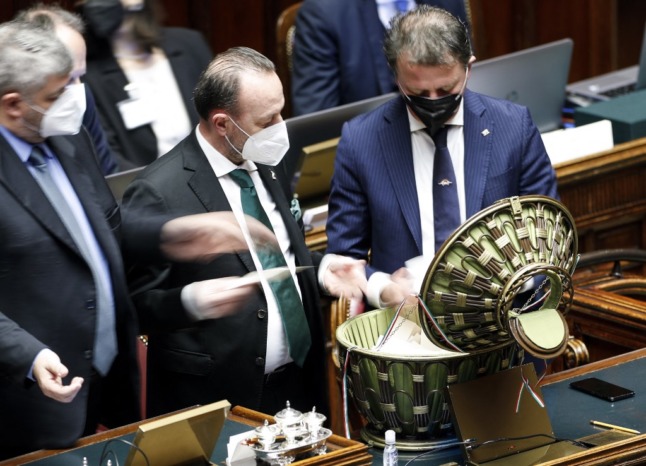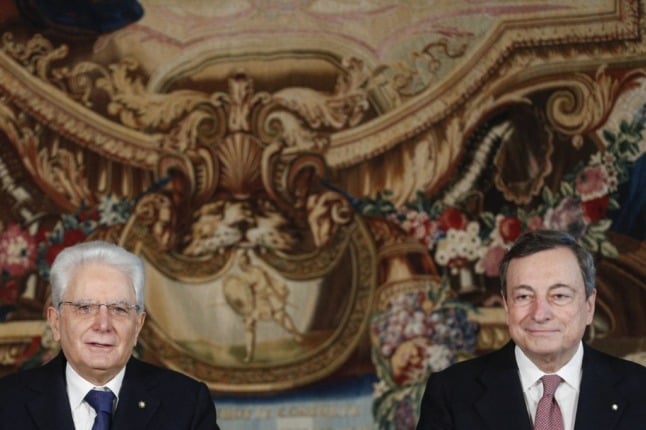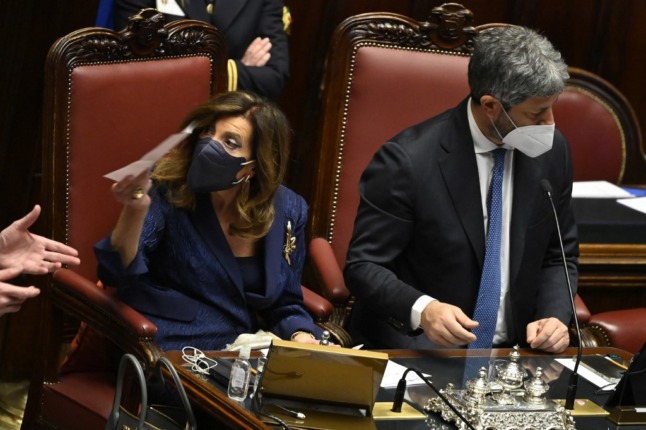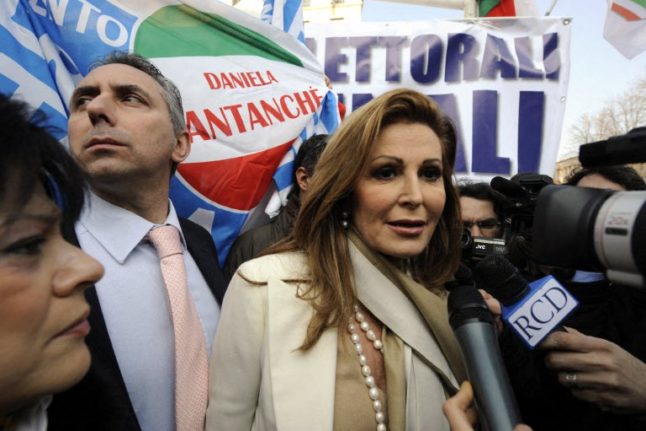From secret ballots to the lack of any formal list of candidates, there are lots of things about the Italian presidential election process that can leave foreigners scratching their heads – particularly if they’re more accustomed to way presidents are chosen in countries such as the US or France.
In fact, non-Italians observing the process often wonder whether descriptions of some aspects are really accurate, or if maybe this particular election year is just unusual.
READ ALSO: Italy again fails to elect president in fourth vote as parties buy time
But in Italy, the fact that the process is carried out largely behind closed doors is barely seen as worth mentioning. Nor is the fact that that no-one really expects a result from the first three days of voting at least.
The rounds are not a process of elimination, and no discernible progress is made. In fact, new and different candidates can be put forward every day.
The roughly 1,000 MPs, senators and other politicians who make up the electoral college may nominate new candidates in every round of voting. Some of these are serious contenders, while others are expected to go nowhere and are put forward for reasons usually incomprehensible to the public, but which have everything to do with power plays within parliament.
In fact, the entire election is decided over weeks of Machiavellian manoeuvring between political forces which takes place not in public view but in the corridors and back rooms of the Palazzo Montecitorio – and famously in the bars and restaurants in its vicinity.
READ ALSO: Five things to know about Italy’s presidential elections

So far, most ballots in each round have been left blank; with a lack of consensus on candidates from the main parties, lawmakers are effectively refusing to vote.
In lieu of a more serious candidate, many votes are also used to nominate members of the public or celebrities, including footballers and porn stars.
There’s nothing that prevents this: according to Article 84 of the Italian Constitution, anyone can be nominated and become head of state as long as the person is alive, Italian and over the age of 50 – as depicted in the 2013 film ‘Benvenuto Presidente!’, in which an unknown member of the public named Giuseppe Garibaldi takes office after hundreds of votes are cast for the long-dead general of the same name.
Usually, though, votes are simply disqualified if the person is deceased: as happened this week, when several ballots were cast for former prime minister Bettino Craxi despite his death in 2000.
It is all taken very seriously by the media, at least. Italy’s main news channels devote days of rolling coverage to the dealings and disagreements between parties and politicians ahead of and after each round of votes – and they pull in plenty of viewers in Italy, which generally has a high rate of voter turnout at general and local elections, and where political games are often watched and discussed much like a soap opera or Netfiix series.
Perhaps for this reason, some Italian media have dubbed the presidential election saga ‘Quirinale Game’, a reference to both the name of the presidential palace and the Netflix survival series ‘Squid Game’.
With all this going on, no wonder it’s hard for outsiders to tell what’s routine and what isn’t in an Italian presidential race.
READ ALSO: The Italian vocabulary you’ll need to follow the presidential election
As parliament is now heading for a fifth round of voting on Friday morning, many people are wondering if this number of votes can really be the norm.
What happens if this round, too, fails to produce a winner? And just how much longer could the process drag on?
Like so many other aspects of the presidential election that can seem odd to outsiders, a fifth vote is not really remarkable.
This is the Republic’s thirteenth presidential election; in ten of the last 12, no winner emerged until at least the fourth round.
Outgoing president Sergio Mattarella was elected in the fourth round of voting in 2013.

In 1971, it took 23 days of voting to elect Giovanni Leone, while Giuseppe Saragat became president after 21 rounds in 1964.
The rules simply state that a vote is held every day until someone is elected.
The current government reportedly wants the process wrapped up by the start of next week at the latest, but whether that will happen or not is anyone’s guess.
The numbers tell us that no winner will emerge until enough successful back-room deals are struck between political parties. From the fourth vote onwards, an absolute majority of 505 votes is needed to win (down from 673 in the first three rounds).
As no single political party has enough votes to reach this number alone, agreements will obviously need to be reached. And one thing that Italian media notes is unusual about the election this time around is the prolonged lack of consensus.
Only on Thursday evening did parties appear to begin serious negotiations over preferred candidates.
Former senate speaker Renato Schifani told AFP it was “the first time I’ve seen parliament so divided”.
If you’re wondering what the point is of such a drawn-out election process and whether it should or could be reformed, you’re not alone.
There have been calls from political leaders, including Brothers of Italy head Giorgia Meloni and ex-Prime Minister Matteo Renzi, for the current system to be scrapped and the head of state to be elected by direct vote in future.
After the fourth round of inconclusive voting on Thursday, Renzi described the ongoing election saga as an “indecent show” by “those who have confused the election of the President of the Republic with the X Factor,” in a tweet insisting the president “should be chosen directly by citizens”.
But it’s not clear how much public appetite there is for changing the system; in fact, plenty of Italians seem to enjoy the spectacle, despite acknowledging that it’s not exactly an efficient process.
Whether or not this will be the last Italian presidential election held via secret ballot, and stretching on indefinitely, is just another thing we’ll have to wait to find out.



 Please whitelist us to continue reading.
Please whitelist us to continue reading.
Member comments